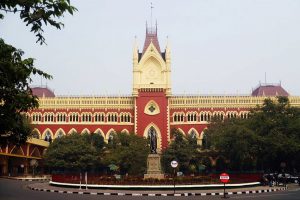Calcutta High Court: Sabyasachi Bhattacharyya, J., expressed that:
Where a conflict arises between individual conscience of the concerned Judge and judicial conscience, supported by law of the land, the former has to give way to the latter.
Second wife of Sardar Natha Singh (deceased) who was a freedom fighter getting a pension from the Central Government under the Swatantra Sainik Samman Pension Scheme, 1980 till his demise has preferred the present challenge.
Petitioner, relying on a deed of declaration of divorce, executed by respondent 11, the first wife and Sardar Natha Singh, the husband of petitioner claimed widow pension, which was refused on the ground that such deed of divorce was not acceptable under the Hindu Marriage Act, 1955 in the absence of a decree of divorce obtained from a competent court of law.
It was submitted that the petitioner and her husband were governed by customs of Jat Sikhs, which permit such a divorce. Petitioner claimed that Section 29(2) of the Hindu Marriage Act, 1955 is attracted.
Analysis and Decision
While noting the facts and circumstances of the case, Bench expressed that for Section 29(2) of the Hindu Marriage Act, 1955 to be invoked, it has to be established by the party relying on a custom that the right of the party was recognized by custom, to obtain the dissolution of a Hindu marriage.
Court noted that in the present matter, High Court did not approach the civil court for a declaration regarding the validity of the divorce deed.
Further, Bench added that the burden and the initial onus lies on the petitioner to prove the existence of a custom having the force of law, to be proved by evidence – oral or documentary – in order to attract the benefit of Section 29(2) of the Hindu Marriage Act.
Section 2(1)(b) of the Hindu Marriage Act, 1955 stipulates that the Act applies to Sikhs as well. Thus, the provisions of the Act, including Section 13 thereof (pertaining to divorce), applies to Sikhs in general.
High Court stated that marriage between respondent 11 and her deceased husband could only be dissolved by a decree of divorce passed by a competent court on any of the grounds as mentioned in Section 13 of the Act, unless the existence of any contrary custom was proved by evidence.
To justify an exception to Section 13 within the purview of Section 29(2), petitioner had to approach a civil court and establish by evidence that the dissolution of the marriage between respondent 11 and her deceased husband was recognized by custom.
Bench also stated that respondent-authorities do not have the jurisdiction in law to decide the matrimonial status of the private parties and/or the validity of the deed of declaration, which could only be done before a civil court.
The initial grant of pension to respondent 11 is an endorsement of the fact that the first wife was found eligible for such pension by the respondent authorities and she had already started getting pension.
A suit in question was filed by respondent 11, inter alia, for a declaration that she was the only married wife and the only widow of Sardar Natha Singh and was entitled to widow pension and that the present petitioner was not the wife and widow of Sardar Natha Singh.
While concluding, Court expressed that the divorce decree executed purportedly between respondent 11 and her deceased husband was not endorsed by any valid custom, the exception envisaged in Section 29(2) of the 1955 Hindu Marriage Act would not be attracted.
Thus, the spouses had to revert back to Section 13 of the Act, which sanctions dissolution of marriage only by a decree of divorce, for the dissolution of marriage to be valid in the eye of law.
Bench held that the fact that pension was granted earlier in favour of respondent 11 upon a valid sanction being issued by respondent-authorities, it would be unjust to deprive respondent 11 of such pension at the behest of petitioner, merely on the basis of the petitioner’s assertion on oath in the present writ petition that a deed of divorce, supported by valid and recognized customs, was executed between respondent 11 and her deceased husband.
Hence, the High Court decided that in view of the long-pending litigation between the private parties, it would be lucrative to direct pension to be paid equally between the petitioner and respondent 11. However, such a course of action would be grossly illegal.
Although Court’s empathy went fully with the petitioner, who was an unemployed lady of about 63 years as per her affidavit, however, the Court found that it had no power to enact law but was bound by the provisions of law as the Parliament, in its own wisdom, chose to promulgate.
Therefore, the writ petition was dismissed.[Krishna Veni v. Union of India, 2021 SCC OnLine Cal 437, decided on 18-02-2021]
Advocates who appeared for the parties:
For the petitioner: Gunjan Shah and Vinit Kumar Choubey
For respondents 1, 2 and 4: Kumarjyoti Tiwari
For respondent 9: Subrata Roy

